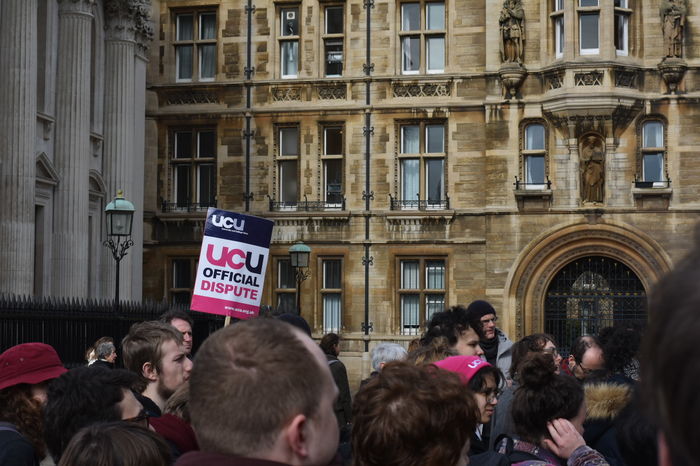Make Cambridge easier – just not too much
Rather than reducing our workload, Cambridge should streamline its academic rigour, Hugh Jones argues

In January, an SU forum reported that “59% of students present were rarely able to complete their work to their satisfaction due to the volume of work”. In July, a University-backed review recommended “structural changes” to fix a “culture of overwork”.
In Cambridge, the word “workload” is evocative. It is not easily defined, but is instantly understood by everyone who has studied here. It binds the NatSci struggling to her 9AM lectures and the Engling grappling with his copy of the Faerie Queene. It covers the historian’s essay crisis and the architect’s… drawing crisis?
This universality can give rise to a little collective masochism. The worst excesses of “workload” are probably self-inflicted. Does a humanities student ever, really, have to pull an all-nighter? How many of your most painful academic moments were actually unforced errors? I know most of mine were. The way we discuss workload struggles both normalises and lionises these difficulties, encouraging us to make problems for ourselves by dabbling in needlessly painful habits.
“In Cambridge, the word “workload” is evocative”
This attitude contaminates our discussion of overwork as a function of University policy. I have had more than a few conversations about the reading week, a long-proposed fix for Cambridge’s workload problem, in which my (student) interlocutor has guiltily hinted that they don’t really want things to get easier.
As the University decides how to respond to the review’s recommendations, I would urge the powers-that-be to target the pointless bloat this attitude protects. If you want to make things easier for students, remove the restrictions and obligations which persist out of sheer bloody-minded refusal to consider changes that might be seen as ‘watering down’ the curriculum. With this in mind, the report’s recommendation that “appropriate boundaries” be set to prevent teaching being scheduled at unsociable hours is a positive sign.
Yet, as Cambridge strips away the unjustified obstacles which are sometimes put in students’ paths, they should be aware of the other side of this issue. Not everything that makes students’ lives harder is unjustified. The University must be careful to avoid throwing out any academic babies with the obstructive bathwater.
If “workload” is one term every Cambridge undergraduate knows well, “academic rigour” is another. As the SU forum suggested, the former can undermine the latter. All-nighters are not conducive to excellent essay writing, as my supervisors last year were only too keen to tell me. In theory, the University should have it easy: cut the unnecessary drudgery, free up students to do really useful work, and watch Cambridge’s reputation for academic brilliance gleam all the brighter.
“Not everything that makes students’ lives harder is unjustified”
In fact, plenty of traps lurk ahead. The great risk is that Cambridge yields to calls to make everything easier, instead of maintaining useful pressures while removing unnecessary ones. Students should continue to be pushed as hard as possible in all ways that are productive. Measures such as the English Faculty’s decision last year to let students bring notes into exams are helpful, because memorising quotations from Macbeth is not what an English degree is about. Shrinking the curriculum or reducing the number of essays students are expected to write, however, would be damaging because it would limit, rather than expand, students’ ability to flourish.
Crucially, the University must grasp that reports of students’ agonies have been greatly exaggerated. Of course a “short poll” of students “present” at an SU workload workshop is going to reveal concerns about workload – frankly it is surprising that the numbers weren’t more stark – but the data overall does not justify alarm. Cambridge has the lowest drop-out rate in the country, with 0.6% of students pulling out in the 2019/20 academic year. If the work was actually too hard, surely that number would be higher than average, rather than well below it?
Moreover, the vision of Cambridge as home to a sea of shattered undergraduates, numbly shuffling from supervision to supervision, is contradicted by its students’ consistent choice to do more than they have to, in both their academic and extracurricular lives. The rowers, ADC-enjoyers, and even student journalists who make up the Cambridge student body are proof that the University’s undergraduates are not drained and decrepit. We might like to complain about work, but our revealed preference is for more of it.
Cambridge is the best university in the country, and that brings an obligation to provide more than just good teaching. The University has a responsibility to push students to their limits so that they gain as much as possible from the privilege of studying here. Cambridge must not reduce productive pressure. Doing so would be a betrayal. If students want an easy ride, they have other options; there must be provision in this country for young people who want to be challenged. The University should seek to make our lives as easy as possible – without compromising on the education it exists to provide.
 News / Uni Scout and Guide Club affirms trans inclusion 12 December 2025
News / Uni Scout and Guide Club affirms trans inclusion 12 December 2025 News / Cambridge Vet School gets lifeline year to stay accredited28 November 2025
News / Cambridge Vet School gets lifeline year to stay accredited28 November 2025 News / Cambridge study finds students learn better with notes than AI13 December 2025
News / Cambridge study finds students learn better with notes than AI13 December 2025 Science / Did your ex trip on King’s Parade? The science behind the ‘ick’12 December 2025
Science / Did your ex trip on King’s Parade? The science behind the ‘ick’12 December 2025 News / Pembroke to convert listed office building into accom9 December 2025
News / Pembroke to convert listed office building into accom9 December 2025








